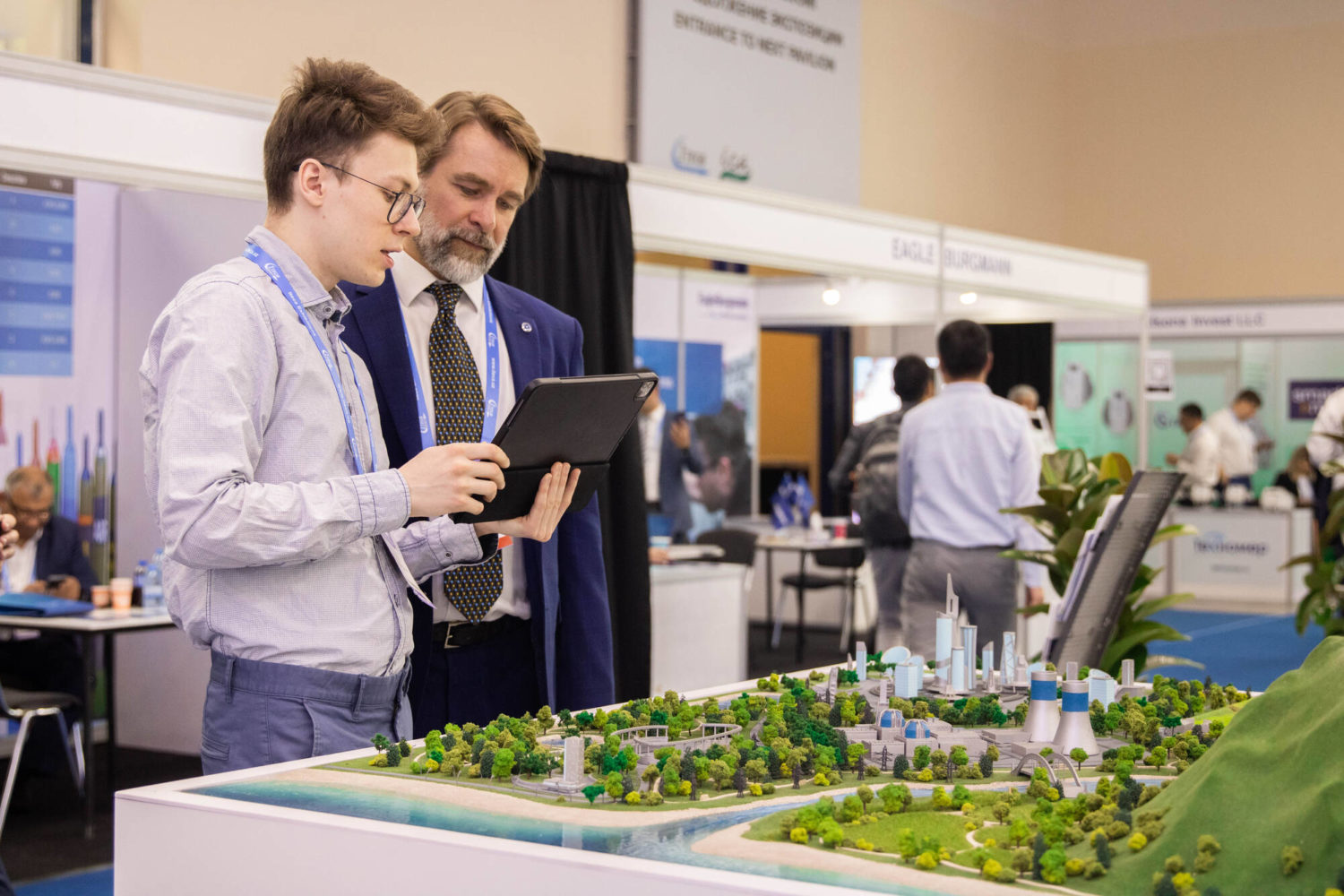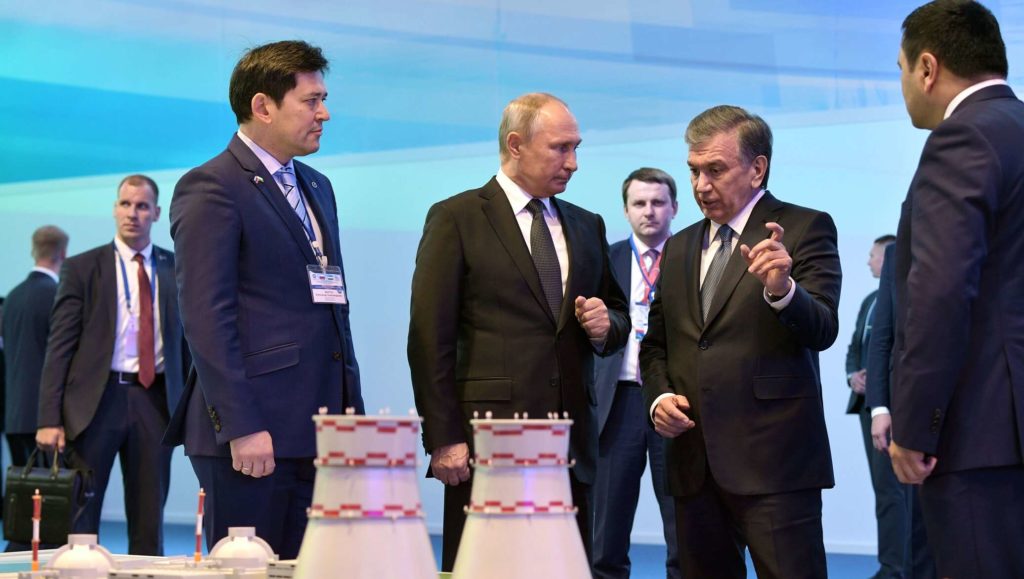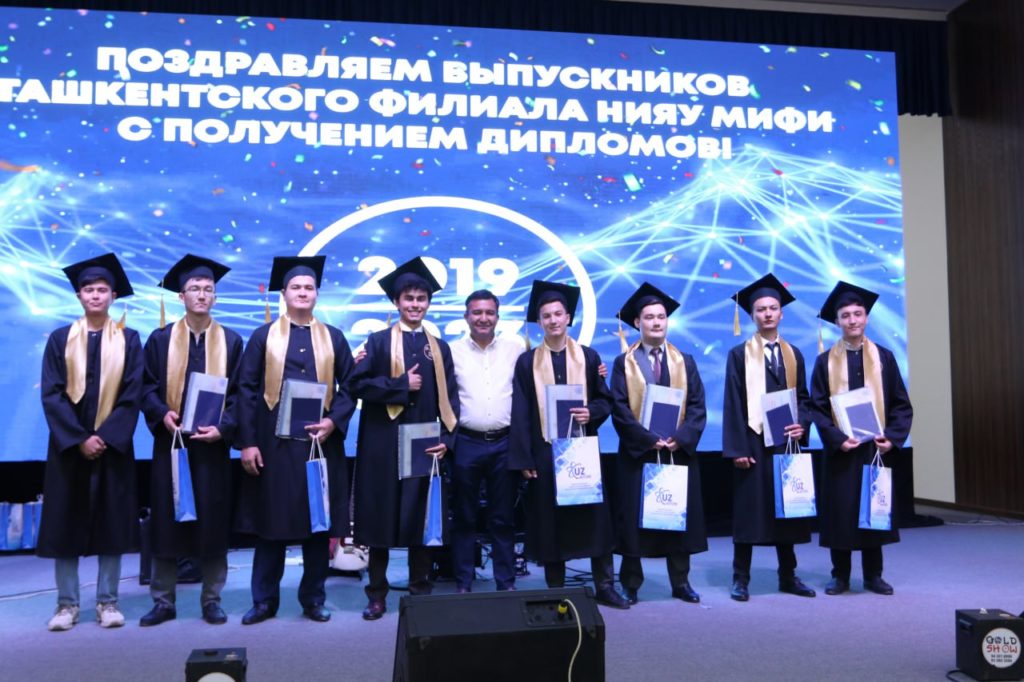
2023: Year in Review
back to contentsIn the past year, Uzbekistan and Rosatom continued working on the project of the country’s first nuclear power plant. New nuclear build is not, however, the only area of cooperation between the two parties. In 2023, Russian and Uzbek nuclear engineers participated in joint educational and business events.
Nuclear power plant project
Nuclear energy is a reliable and clean source of electric power. Uzbekistan needs nuclear to meet its growing demand for electricity, experts say. Bakhtiyor Ergashev, Director of the Ma’no Center for Research Initiatives, told Nuz.uz that the country was facing the need to diversify its sources of power generation. “The best option is to develop nuclear power as another reliable low-carbon source of baseload electricity. This will contribute to reducing the dependence of Uzbekistan’s energy sector on natural gas,” the expert noted.

In 2017, Russia and Uzbekistan signed an agreement on the construction of a nuclear power plant in the country, the first in Central Asia. The plant will have two power units with VVER 1200 reactors and a total installed capacity of 2,400 MW. The nuclear power plant is planned to be built in the Jizzakh Region near Lake Tuzkan.
In January 2023, the country hosted a five-day IAEA mission to analyze safety processes and assess the site of Uzbekistan’s first nuclear power plant. In December, the IAEA approved a technical cooperation program for another five national projects to be implemented in Uzbekistan in a new cycle. Three of them are aimed at boosting the country’s potential for nuclear infrastructure development, strengthening the regulatory framework, improving nuclear safety, and effectively utilizing Uzbekistan’s nuclear research reactor. The fourth project is related to setting up a stable isotope laboratory that will monitor water resources. The fifth project is aimed at reducing cancer mortality with nuclear medicine technology.
In November 2023, Rosatom chief Alexey Likhachev said that drafting a contract to build a nuclear power plant in Uzbekistan was in its final phase. He added that Rosatom had conducted a number of surveys on the site and made additional proposals for small-scale generation.
In December, speaking at the UN Climate Change Conference (COP28), Rosatom Chief Sustainability Officer Polina Lion said Rosatom and Uzbekistan were discussing the possibility of using the ‘dry cooling tower’ technology. With this technology, no water evaporates in the process of reactor cooling.
Business activity
In late April, Rosatom took part in the INNOPROM. Central Asia international industrial trade fair attended by over 10,000 visitors from 24 countries. Rosatom presented advanced technologies and products in nuclear medicine, digitalization, wind power, and energy storage.
The Russian nuclear corporation is the world’s Top 5 supplier of medical isotopes. Rosatom also produces medical equipment for radiation therapy and brachytherapy, and builds nuclear medicine centers and multi-purpose irradiation facilities for the sterilization of medical devices and treatment of foods. An irradiation center is now under development in Uzbekistan with Rosatom’s input.
Great interest among the exhibition visitors was aroused by the Brachyum gamma therapy system presented by Rosatom. The system is designed to treat cancers localized in the pelvic organs, breast, esophagus, nasopharynx and oral cavity. Rosatom also presented Tianox, a device for nitric oxide therapy in adults and children.
“We are planning some joint healthcare projects with our partners from Uzbekistan, such as the development of nuclear medicine centers that will use Rosatom’s radiopharmaceuticals and equipment, and training of medical personnel for them,” Igor Obrubov, CEO of Rusatom Healthcare (part of Rosatom), shared plans.
In May, Rosatom took part in the 2nd Uzbekistan Energy Forum and Power Uzbekistan 2023 Exhibition, the country’s largest energy sector platform. Rosatom representatives spoke about nuclear power and raised other matters that are of strategic importance for the fuel and energy sectors of the economy.
In June, a memorandum of cooperation was signed in Samarkand between Rusatom Healthcare, the Eurasian Academy of Good Practices, and the State Center for Expertise and Standardization of Medicines, Medical Devices and Medical Equipment of Uzbekistan. The parties agreed to expand cooperation in ensuring safety, efficacy and quality of medicines and pharmaceutical substances in the EAEU.
Education and science
Russian and Uzbek nuclear specialists have long been maintaining contacts in the field of science and education. A branch of the National Research Nuclear University (MEPhI), one of Rosatom’s backbone universities, was opened in 2019 in Tashkent. In March 2023, Konstantin Mogilevsky, Deputy Minister of Science and Higher Education of Russia, visited the Tashkent branch of MEPhI. He praised the high level of student training and excellent facilities of the branch. In July 2023, the Tashkent branch of MEPhI hosted the first bachelor graduation ceremony. Diplomas were awarded to 62 graduates. Out of them, 30 decided to continue their studies for the Master’s degree, and 24 are studying at MEPhI in Moscow.

In the autumn of 2023, representatives of Uzbekistan took part in an international youth nuclear forum held in the Russian technopolis Obninsk.
Students of the Tashkent branch of the National Nuclear Research University (MEPhI) had an opportunity to watch a live broadcast from the forum. Shavkat Abdukamilov, Executive Director of the MEPhI branch in Tashkent, spoke about Uzbekistan’s experience in training personnel for the national nuclear industry. He noted that the IAEA had named the opening of the branch among Uzbekistan’s five best practices and recommended it to other newcomer countries embarking on their national nuclear energy programs.
Cooperation between nuclear researchers from Russia and Uzbekistan continued. In May 2023, Tashkent hosted a meeting of the Non-Energy Nuclear Technology Application Committee of the Advisory Board of the MBIR International Research Center (MBIR IRC). MBIR is a research reactor under construction in Russia. The meeting was attended, including via video link, by representatives of Uzbekistan, Kazakhstan, China, Armenia, Algeria, Brazil, South Africa, the IAEA, and the Joint Institute for Nuclear Research.
MBIR IRC Advisory Board Chairman Stepan Kalmykov stressed that Uzbekistan was Russia’s strategic partner in the MBIR Project. Ilham Sadikov, Director of the Uzbekistan Academy of Sciences Institute of Nuclear Physics (INP), said that the Institute’s immediate plans included the signing of an agreement on joining the MBIR IRC Consortium. An agreement on legally binding terms of joining the Consortium was signed back in November 2022. “Joining the MBIR IRC Consortium and access to the MBIR reactor capabilities will unlock the research potential of INP and provide an opportunity to conduct extensive research in nuclear physics and medicine, reactor material science, and production of radioisotopes,” Ilham Sadikov noted.




